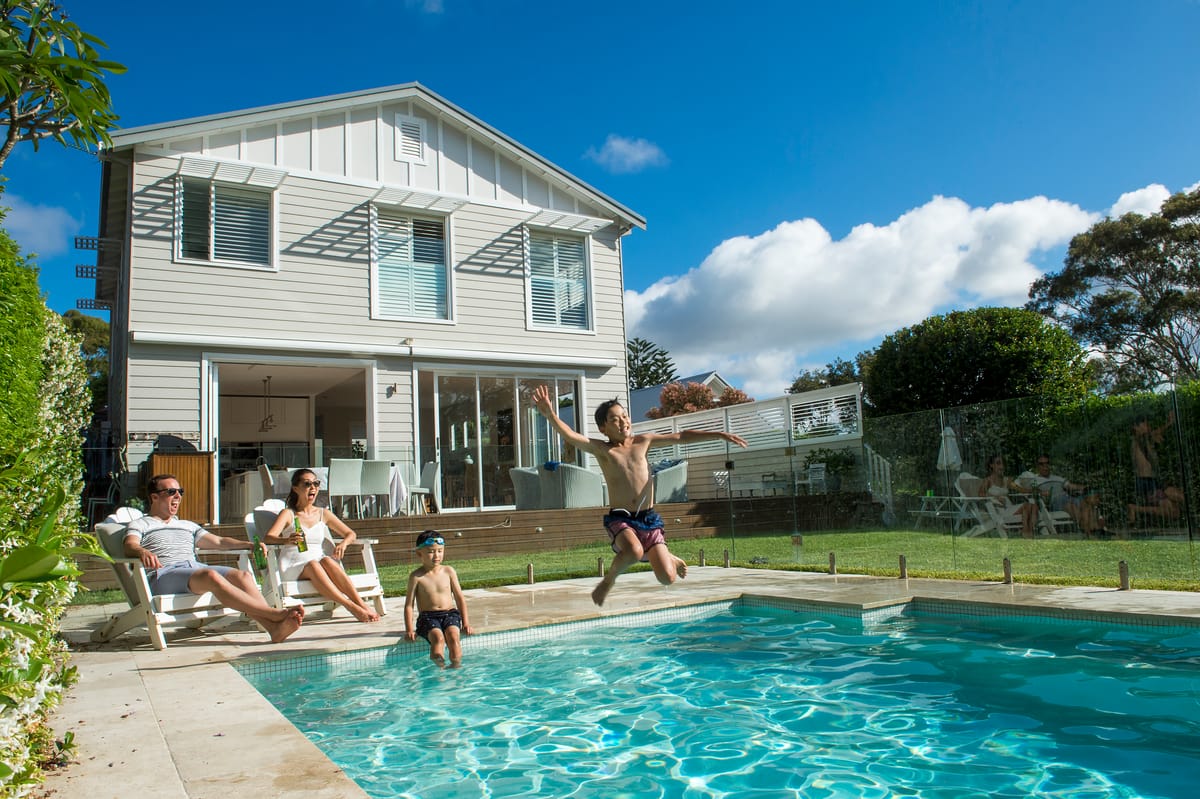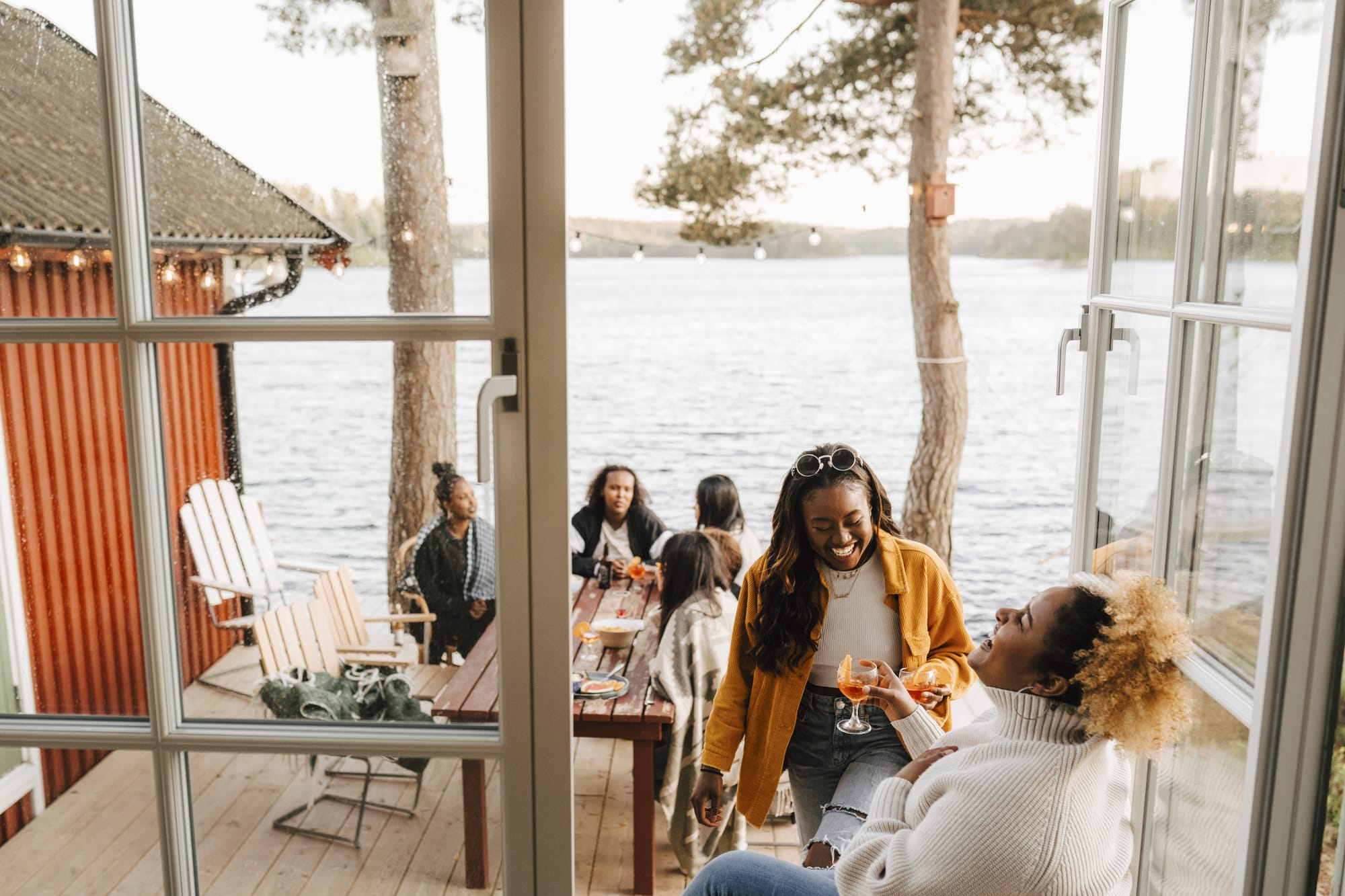How to Leverage Your Second Home Beyond Airbnb: Expanding Your Options and Experiences
Are you tired of cleaning, managing bookings, and chasing five-star reviews? There are better ways to enjoy your second home and share it with others without turning it into a side hustle.

Many second homeowners turn to Airbnb as the default option for using their property. It seems convenient and profitable, but it often comes with hidden costs and complications. Constant cleaning, guest turnover, and fluctuating demand can make it feel more like a job than a benefit.
Short-term renting isn’t the only way to gain value from your second home. There are other options that focus less on profit and more on meaningful experiences. These alternatives can help you travel more, spend less, and enjoy greater peace of mind.
One of the most rewarding options is home exchange. Instead of renting to guests, you swap homes with other members in a trusted network. It’s a way to explore new places while someone else enjoys your own home.
Some second homeowners offer their place to friends, family, or travelers through trusted networks. Others use the property seasonally, for personal retreats, creative work, or even as a long-term base for exploring a region.
In this post, we’ll walk through different ways to leverage your second home that go beyond Airbnb. You'll discover how to turn your second property into a source of connection, inspiration, and new experiences.
1. Join a home exchange community
Instead of listing your second home for short-term profit, consider home exchange, a model built on trust, mutual benefit, and shared values. Home exchange allows you to stay in someone else’s home while they stay in yours, creating a cost-free alternative to traditional rentals.
It’s a community-driven way to explore new destinations, avoid Airbnb fees, and connect with like-minded travelers. Unlike commercial renting, home swapping focuses on meaningful cultural exchange, local immersion, and sustainable tourism.
Platforms like Home Exchange Collection have made this process simple and secure, with built-in tools for clear communication, key exchange coordination, and guarantees to protect both parties.
For those with high-end second homes or a preference for elevated stays, the HomeExchange Collection is a premium tier designed to meet luxury standards. Members of the Collection community gain access to luxury homes, a trusted global network, and exclusive perks like flexible scheduling, unlimited exchanges, and priority support.
GuestPoints, a unique feature of the platform, allows you to enjoy stays even when a direct exchange isn’t possible.
Read also: Why HomeExchange is the Best Home Exchange Site of 2025.
2. Create a rotating family or friend getaway spot

Using your second home as a shared retreat among friends or family members can be incredibly rewarding. Instead of renting it out to strangers, create a calendar where trusted people can enjoy the space.
This builds stronger bonds and lets you keep the home within your network. You can manage key exchange through smart locks or shared entry systems. This method promotes trust and consistency, and minimizes the wear and tear often seen with traditional accommodations.
Everyone benefits from a familiar, well-maintained space they can return to. It also keeps the house in use and tip-top shape year-round.
3. Offer your second home for creative residencies
Offering your second home as a creative retreat is an excellent way to support artists, writers, or remote workers. Many creatives seek peaceful environments for focus and inspiration, making your unused vacation property valuable.
You can offer short-term residencies through dedicated platforms or within your network. These stays help support the arts while making the most of a second home without involving profit-driven rentals. It also encourages sustainable use of vacation properties and community-driven second home use.
Hosting creatives introduces you to new perspectives and helps build connections with like-minded individuals. Many creatives are happy to offer something in return, such as art, writing, or workshops.
This value exchange fits within the sharing economy and brings life to your space without Airbnb fees or wear from frequent guests.
4. Turn your home into a community-supported stay
Opening your second home to vetted guests from nonprofit or educational programs allows you to give back to your community. This option goes beyond vacation swaps and taps into cultural exchange and responsible tourism.
These guests typically respect the space and share a deeper appreciation for authentic experiences. Homeowners who value community may find this arrangement more fulfilling than traditional rentals. It encourages a sense of purpose while still making the most of the property.
House exchange programs with a mission attract people who want to contribute to local community projects. It also helps avoid ghost neighborhoods by bringing real people into your space. With clear expectations and the right platform, this type of home sharing can be both low risk and highly rewarding.
5. Use your home for destination-based skill exchanges
Skill-based exchanges involve hosting guests who offer a service in return for accommodation. Depending on your needs and location, this could include gardening, home improvement, or language lessons.
Guests benefit from a unique living experience, and you receive help maintaining your property or learning a new skill. Leveraging your second home this way helps create mutual value and foster collaboration.
With flexible schedules and clear communication, these stays often run smoothly. Trust and transparency are key for a successful exchange.
6. List your home on sustainable travel platforms
Sustainable tourism platforms attract travelers seeking eco-conscious, authentic stays over commercial lodging. Listing your second home on a platform like HomeExchange, a certified B Corp, aligns with responsible travel goals and helps you connect with like-minded guests. This platform offers both free and premium listings, highlighting properties with eco-friendly practices to a dedicated audience.
This method avoids the downsides of frequent short-term rentals and promotes thoughtful travel habits.
Sustainable use of vacation properties reduces the impact on urban areas and supports the local community. Plus, you're more likely to attract respectful guests who see your home as a real home, not just a hotel.
You can offer virtual tours, outline expectations with a messaging system, and use insurance coverage options when available. Platforms that support home sharing for responsible travelers help ensure a smooth experience.
7. Host traveling pet owners in exchange for care
Pet sitting exchanges let you match with pet lovers who are happy to care for your animals while enjoying a stay in your home. It’s a perfect way to save money on pet care while allowing guests to live like locals.
Pet lovers will often jump at the chance to stay in a real home with pets included. This alternative use for second homes supports responsible travel and fosters trust between the homeowner and the visiting pet sitter.
Many pet-friendly home exchange platforms offer listings filtered by pet preferences and compatibility. You can explore options through HomeExchange pet-friendly accommodations, which help you connect with fellow pet lovers and set up swaps that work for both your home and your animals.
Pet sitting arrangements often lead to strong bonds and even future exchange partners. Leaving pets at home during swaps reduces stress for animals and owners.
8. Offer your home to digital nomads with flexible stays
Digital nomads are always on the lookout for homey, work-friendly spaces worldwide. Offering your second home to your friends or family members who are digital nomads allows for longer-term, low-risk stays without the churn of frequent guests. This appeals to those looking for more than just a hotel room.
These travel enthusiasts appreciate high-speed internet, quiet environments, and a sense of community. Hosting digital nomads encourages cultural exchange and allows you to use your home purposefully.
It can also be an opportunity to test flexible lease models or use house-swapping sites with messaging systems. It’s an excellent idea for second homeowners in urban areas or peaceful retreats. These stays can be smooth and mutually beneficial with secure messaging, clear communication, and flexible schedules.
See also: Work remotely from anywhere in the world by home exchanging.
9. Participate in cultural or educational housing programs
There are many cultural and educational initiatives that match second homeowners with travelers or students seeking immersion experiences. These guests are often interested in local culture and prefer real homes over traditional accommodations.
Your second home can serve as a host site for language learners, researchers, or exchange students. By offering your property for these stays, you contribute to deeper global connections. Guests often stay longer and treat the home with care, reducing wear and ensuring a successful exchange.
Many members of these programs are experienced home swappers or part of educational institutions.
10. Use your home as a retreat for wellness or meditation groups
Wellness travelers often seek peaceful, restorative environments for retreats and small group gatherings. If your second home fits the bill, you can offer it to groups focused on yoga, meditation, or mindfulness.
Hosting wellness events supports sustainable tourism and can attract returning guests who respect the space. You can collaborate with facilitators to manage bookings and maintain the home’s integrity.
Providing space for these wellness activities fosters community, connection, and positive experiences. You can use insurance coverage and secure messaging tools to ensure peace of mind. It’s a powerful way to use your home for healing and growth.
You may also like: The difference between HomeExchange and other vacation rental sites like Airbnb.
Takeaway: Unlock the full potential of your second home beyond Airbnb
Your second home doesn’t need to become a side hustle to be valuable. If managing guests, pricing, and maintenance feels like a burden, it’s time to rethink your approach.
Look into options like home exchange, shared ownership with friends or family, or even using the space for personal retreats and remote work. These alternatives can offer real value, without the stress of constant turnover or unpredictable income.
If you're exploring home exchange, platforms like HomeExchange Collection offer a more relaxed and meaningful way to travel. You can enjoy real homes in real neighborhoods, while someone else stays in yours. It’s less about profits and more about purpose.
FAQs
Some of the most common questions from home exchangers and second home owners are:
What is home exchange, and how does it work?
Home exchange is a travel arrangement where people swap homes with another party. This allows guests to visit new destinations while staying in a real home environment. It fosters community, offers a local daily life experience, and saves money on hotels.
How does home exchange differ from renting a vacation home?
Unlike renting, home exchange doesn't involve nightly rental costs. You stay in someone else's home while they stay in yours—or use guest points instead. This sharing economy model makes home exchange a practical, community-driven choice.
What are the different types of home exchanges?
There are simultaneous exchanges, non-simultaneous exchanges using guest points, and hospitality exchanges. Each type offers flexibility depending on your schedule and comfort level with sharing space.
Can I exchange my home for different types of accommodations?
Home exchangers can swap a city apartment for a countryside villa or vice versa. Many members enjoy experiencing daily life in entirely different settings. It's a great way to discover both new destinations and lifestyle perspectives.
Are there any costs involved in using a home exchange service?
While exchanges themselves are cost-free, most platforms charge an annual fee. This membership fee typically covers secure messaging, insurance coverage, and platform support. It’s far more affordable than paying Airbnb fees or hotel rates.
Is home exchange a good idea?
Home exchange is an excellent idea for those seeking meaningful travel and savings. It allows for extended stays, deeper cultural connections, and immersive experiences.
What are the risks or downsides of home swapping?
Risks include mismatched expectations or last-minute cancellations by the other party. However, clear communication and using verified platforms like HomeExchange Collection greatly minimize these issues. We offer support and insurance to ensure a successful exchange.
Is home exchange safe?
Yes, especially when using reputable house swapping sites with verified users and reviews. Secure messaging tools, identity verification, and support teams help protect both parties. Many home exchangers report feeling safer than they do with traditional accommodations.
How do I prepare my home for a home exchange?
Ensure your home is clean, organized, and in tip-top shape for guests. Providing a welcome guide, local tips, and clear instructions enhances the experience. Fostering community with home exchanges starts with being a thoughtful host.
Can I participate in a home exchange if I rent my home?
It depends on your rental agreement, so always check with your landlord first. Some leases allow short-term guests, while others don’t. It can be a smart way to leverage your home for travel if allowed.
Are there pet-friendly or cat-friendly home exchange options?
Yes, many platforms, such as HomeExchange, include filters for pet-friendly home exchange options. You can also specify needs like caring for pets in home exchange agreements. This makes traveling easier for pet lovers without hiring a pet sitter.
Does HomeExchange Collection allow pets?
Yes, the HomeExchange Collection includes pet-friendly homes, though policies vary. Clarifying expectations and pet care responsibilities during the key exchange process is essential. Caring for pets can be part of the cultural exchange experience.
How do guest points work on HomeExchange Collection?
Guest points allow members to stay in someone else’s home without a direct swap. You earn points by hosting guests and spend them to stay elsewhere. It enables flexible schedules and makes planning your first exchange easier.
What is the best home exchange community?
HomeExchange Collection is the best home exchange community. It offers a perfect match due to its secure tools and active members. It’s designed for luxury travel enthusiasts seeking deeper connections.
What is the difference between a second home and a vacation home?
A second home is regularly used and may be closer to your primary residence. A vacation home is often further away and used only occasionally. Both can be leveraged through home swapping for extra value and connection.
What are the financial guidelines for owning a second home?
Owning a second home involves qualifying for a mortgage with stricter terms. Lenders may require larger down payments and substantial financial documentation. These financial steps are essential before you can begin building a community through home swapping.
What are the tax benefits of owning a second home?
Some tax deductions, such as mortgage interest and property taxes, may be available. However, the rules vary if you rent or use the home for exchange. Consult a financial advisor for a comprehensive guide tailored to your case.
What is the 30/30/3 rule for home buying?
This rule suggests spending no more than 30% of your gross income on housing. It also recommends a 30% down payment and buying a home three times your income. Following this helps ensure you can afford your next adventure responsibly.
What’s the best way to finance a second home?
Financing a second home involves a conventional mortgage with a solid credit score. Some people tap into home equity from their primary residence. Owning and using a second home for exchange can help justify the investment.
How can you avoid the 20% down payment on a second home?
You might explore government programs or consider co-owning with a trusted partner. Some buyers also use a primary residence refinance to access funds.
Is it wrong to claim an investment property as a second home?
Yes, misrepresenting an investment property can lead to legal or tax issues. Be honest in your application and follow the guidelines set by your lender. A second home used for home exchange is generally not considered an investment property.
What are the risks or downsides of owning a second home?
Maintenance, taxes, and vacancy periods can all pose challenges for second-home owners. However, participating in a house exchange community can offset some of these risks. Regular guests visiting and home swapping help keep your property active and cared for.




